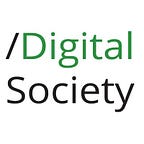How to complete the third assessment: digisoc3
Official guidance for students taking UCIL26002
This is the official course guidance for the third assessment, digisoc3. You should refer to it when planning, completing and reviewing your work.
We have also recorded an informal introduction to the assessment, which you can access as video, audio (SoundCloud/mp3), or a transcript with links. The podcast doesn’t replace this page, but you may find it a good place to start.
Below is the official assessment brief
digisoc3 assessment brief
Using one or more themes explored in the course unit as a guide, write a post of 1500 words in which you critically examine the implications of living in a digital world. This should include a 500 word reflection on how you have developed through exploring these themes (for example, how this course has challenged you, what you have gained from it, how it may help you in future).
Topic: Implications of living in a digital world, with reference to one or more themes from the course unit. How Digital Society has helped you develop.
Style: Blog post. This means: more informal tone than an essay. You are still required to reference everything you would in an essay, including ideas from other students’ previous writing on this unit.
As you are are writing online, link to what you are referencing within the text of your blog post rather than producing a reference list at the end of your blog post. For help with referencing you can access our Medium page on how to reference in the Digital Society.
Student coursework: digisoc3 submissions from the last 3 years can be accessed on Medium. You can be inspired by, see what the format looks like and the range of subjects that were covered.
Marking criteria:
- Understand the key concepts of a ‘digital society’, the ethics of online information use and the skills needed to be effective and successful digital scholars and citizens. Think critically about information, practice self-reflection and collaborate across disciplines, applying learning to other aspects of academic, personal and professional life. Partially relates to Learning Objectives 1, 2 and 4.
- Use the internet and social media to develop your communication skills, share information and develop your online profile, with a relevant understanding of issues of intellectual property. Partially relates to Learning Objectives 5 and 4.
- Full description of marking criteria for this assessment.
- Full description of each learning outcome, and how they are assessed.
Extra guidance:
Your post should give a balanced, informed view of what the implications of ‘living in a digital world’ are, including consideration of ethics, our responsibilities as ‘digital citizens’ and reference to one or more themes covered in the unit. You will need to support your arguments with reference to relevant sources which can include traditional literature, online articles, or other students’ ideas. It should also include a personal account of what you have gained from the unit, and any ways in which your thinking about ‘digital society’ has changed.
Taking into account what you have learned about writing online, you should demonstrate effective and appropriate communication, and should reference and attribute ideas, information and images appropriately.
Length:
- 1000 words: critically examining the implications of living in a digital world
- 500 words: a self-reflection section of around 500 words.
- Both sections combined together = 1500 words.
Licensing: Choose any licence available on Medium to share your work. The University maintains its usual rights to store and use your assessed work, but you remain the copyright owner, and you may release/use the work as you wish, as long as you do not change the submitted version until after the unit has finished. This is to enable us to assess it, and other students to read it.
Submission format:
- Public Medium post, published with the tag digisoc3, submitted to the Digital Society publication
- Anonymised Word copy submitted to TurnItIn via Blackboard.
- Full instructions for submission.
You can edit your post until the deadline, but you must not edit, delete or unpublish your work between the deadline and the end of the unit. This is to allow your work to be marked and viewed by others.
Rules and regulations: See Overview: Assessment for details.
Deadline: 12pm midday (UK time), Friday 3rd May 2024
Weighting within unit: 60%
Please email digisoc@manchester.ac.uk with any questions or problems.
